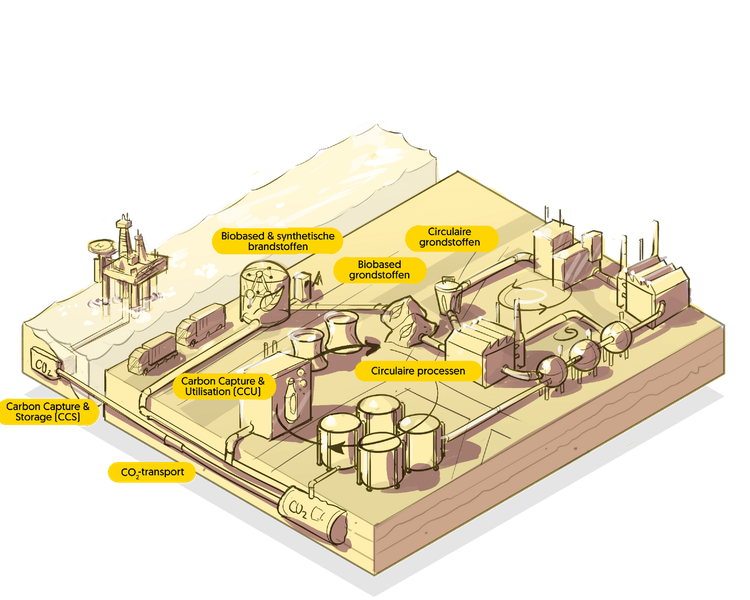Two of the Meerjarige Missiegedreven Innovatieprogramma’s (MMIP’s) cover themes related to agriculture and land use:
- MMIP 11: Klimaatneutrale productie food en non-food (pdf)
- MMIP 12: Land en water optimaal ingericht op CO2-vastlegging en gebruik (pdf)
Furthermore, developments in other sectors have an impact on the challenge of achieving climate-neutral agriculture and nature, such as the built environment, sustainable electricity generation, industry, and mobility.
Meer weten?
Agriculture and Nature
-
The aim of this MMIP is to make a maximum contribution to reducing greenhouse gas emissions from agriculture in the Netherlands. This includes reducing emissions from livestock farming and agricultural soils, as well as increasing carbon sequestration in forests and nature.
The key focus areas include:
- Reducing methane emissions from animals.
- Reducing methane and nitrous oxide emissions from barns and manure storage, including upgrading manure.
- Understanding the factors that contribute to nitrous oxide production in soils.
- Developing new fertilization products and strategies aimed at reducing greenhouse gas emissions.
- Reducing oxidation in peatlands.
- Increasing carbon sequestration in forests and nature.
